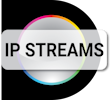 The Network Device Interface (NDI) is a powerful network video transport that allows simple, high quality video and audio signals to be transported across standard TCP/IP networks. Drastic supports NDI in most of its products, including Net-X-Code Server, FlowCaster, videoQC, sdiScope, 4KScope, HDRScope, and NetXScope. This article contains information on setting up to view NDI streams in Drastic software.
The Network Device Interface (NDI) is a powerful network video transport that allows simple, high quality video and audio signals to be transported across standard TCP/IP networks. Drastic supports NDI in most of its products, including Net-X-Code Server, FlowCaster, videoQC, sdiScope, 4KScope, HDRScope, and NetXScope. This article contains information on setting up to view NDI streams in Drastic software.
For more than three decades, Drastic™ has been developing cutting edge digital video solutions for television, post production and sports broadcasting, from real time web delivery to 8K broadcast.
We offer standalone software for the end user or enterprise, integrated solutions for automated workflows, and OEM tools for custom applications or branded devices.
Contact Us
523 The Queensway, Suite 201
Toronto, ON
M8Y 1J7, Canada
Phone: +1 (416) 255 5636
Email: sales@drastictech.com
Fax: + 1 (416) 255 8780
Follow us on Social Media

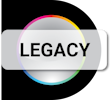 Note: this area contains legacy information and is presented for reference only)
Note: this area contains legacy information and is presented for reference only) This article contains video tutorials on various Drastic Products including videoQC, DrasticScope, and Net-X-Code Server. To see all our tutorials, please visit our
This article contains video tutorials on various Drastic Products including videoQC, DrasticScope, and Net-X-Code Server. To see all our tutorials, please visit our 
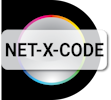 eMAM provides a number of integrations with Drastic products including Net-X-Code, Net-X-Convert, and Net-X-Proxy. For most cases, the main configuration is done within eMAM itself. In the case of live capture, configuring the Drastic server to send messages to eMAM allows eMAM to detect new records, and allows the user to access them while they are still recording. This article has the details for that setup.
eMAM provides a number of integrations with Drastic products including Net-X-Code, Net-X-Convert, and Net-X-Proxy. For most cases, the main configuration is done within eMAM itself. In the case of live capture, configuring the Drastic server to send messages to eMAM allows eMAM to detect new records, and allows the user to access them while they are still recording. This article has the details for that setup. Drastic software can support up to 16 channels of audio. These can be 16 mono channels, 8 stereo pairs or all channels in one, depending on the setup and file type. This article covers the kinds of audio that the software can produce, and the audio setups it is able to read automatically to combine multiple channels of audio with video.
Drastic software can support up to 16 channels of audio. These can be 16 mono channels, 8 stereo pairs or all channels in one, depending on the setup and file type. This article covers the kinds of audio that the software can produce, and the audio setups it is able to read automatically to combine multiple channels of audio with video. 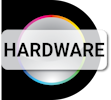 4KScope (and HDRScope/NetXScope) can be set up to share an AJA board with products like Adobe Premiere, Avid Media Composer, Assimilate SCRATCH, Autodesk Flame, Filmworkz Nucoda, Grass Valley Edius, and others. This mode is available on Windows, macOS and Linux. This article explains how it works and how it can be set up.
4KScope (and HDRScope/NetXScope) can be set up to share an AJA board with products like Adobe Premiere, Avid Media Composer, Assimilate SCRATCH, Autodesk Flame, Filmworkz Nucoda, Grass Valley Edius, and others. This mode is available on Windows, macOS and Linux. This article explains how it works and how it can be set up.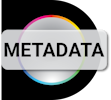 Drastic software supports a wide range of metadata elements. These elements are stored within the actual media files when available, and also stored in a sidebar XMP file, using both the standard, and a custom DTD, with the Adobe specification. Please see each file format's specification for its metadata. The XMP file metadata format is outlined here.
Drastic software supports a wide range of metadata elements. These elements are stored within the actual media files when available, and also stored in a sidebar XMP file, using both the standard, and a custom DTD, with the Adobe specification. Please see each file format's specification for its metadata. The XMP file metadata format is outlined here. Drastic software supports the OpenMXF specification extension to the SMPTE MXF specification (SMPTE 377M). The advantage of OpenMXF is that while the file is still recording (open) you can read it in many popular servers and editing applications.
Drastic software supports the OpenMXF specification extension to the SMPTE MXF specification (SMPTE 377M). The advantage of OpenMXF is that while the file is still recording (open) you can read it in many popular servers and editing applications.
 videoQC can be called by external applications with command line parameters, keyboard/mouse, cut/paste and via a full REST/HTML command set. If there is already an instance of the application running, the parameters will be transferred to the running instance, and the called one will exit. This is especially useful where the workflow requires the system to display particular aspects of a clip in an automated fashion.
videoQC can be called by external applications with command line parameters, keyboard/mouse, cut/paste and via a full REST/HTML command set. If there is already an instance of the application running, the parameters will be transferred to the running instance, and the called one will exit. This is especially useful where the workflow requires the system to display particular aspects of a clip in an automated fashion.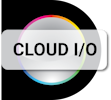 Drastic's videoQC, MediaReactor Lite, and Net-X-Code Server software supports authenticating directly with Amazon via AWSAccessKeyId/SecretKey through an https transport. This is most useful for Net-X-Code's partial file restore system, but can also be used from videoQC and MediaReactor. Accessing these resources requires a second level of setup, beyond the basic software setup, and this article provides an overview on that process. Also see:
Drastic's videoQC, MediaReactor Lite, and Net-X-Code Server software supports authenticating directly with Amazon via AWSAccessKeyId/SecretKey through an https transport. This is most useful for Net-X-Code's partial file restore system, but can also be used from videoQC and MediaReactor. Accessing these resources requires a second level of setup, beyond the basic software setup, and this article provides an overview on that process. Also see: 